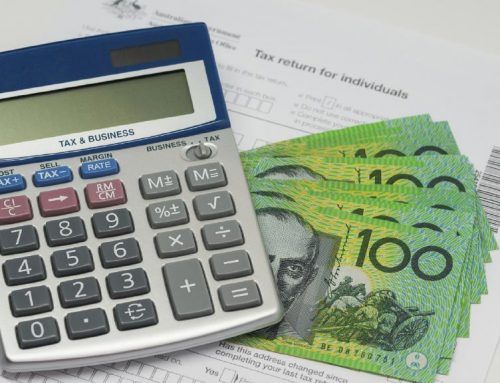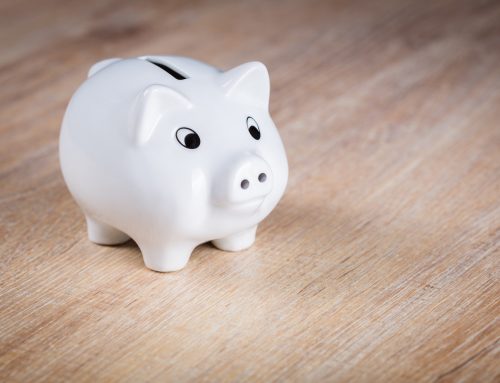Cash? What cash? Are we mocking you by writing about what you should do with those imaginary piles of money you have stashed under your bed?
Look, we know that saving can be hard. Especially when you’re in your 20s and feel like the world is your oyster. And it doesn’t help that record-low interest rates are hardly a motivation to save.
But the great thing about saving and investing is you don’t need to have a big wad of cash to get started. Even if you can only afford to set aside $100 a month to begin with, it’s still a start. The important thing is you develop good financial habits now which will set you up for later in life.
By the way, if you’re interested in finding out more about any of these things, you should definitely get in touch so our unordinary finance experts can help with your personal situation.
1. Pay off bad debt
We put this at number one for a reason. If you have a personal loan or credit card debt, the best thing you can do with any spare cash is clear your debt as fast as possible. This is because interest rates on debt are almost always way higher than what your money would earn if you invested it.
The worst thing you can do with a credit card is just make the minimum repayments each month. All you’re doing here is boosting the bank’s profits while your debt increases. Do WHATEVER YOU CAN to get back in the black.
The one exception is your mortgage, since home loans typically come with lower interest rates. However, there’s no harm in paying down a lump sum on that too, if you get the chance.
2. Have a buffer
A study by finder.com.au earlier this year revealed that half of Australians worried they wouldn’t have enough money to get by if something went wrong.
The consensus among financial experts is that you should have 3-6 months worth of living expenses set aside to tide you over if you become unemployed or face a medical emergency, for example.
Your rainy-day fund should be in a place that’s easy for you to access at short notice. This might mean it doesn’t earn much interest, but if you’re in need of the money urgently it won’t be much use if you have to sell a property in order to access it.
Gen Y have earned themselves a reputation for not saving enough. Now would be a good time to prove that stereotype wrong, since you never know what’s around the corner when it comes to the economy.Once that’s sorted, look at better ways to build your wealth
3. Once that’s sorted, look at better ways to build your wealth
With your emergency fund safely tucked away you can turn your attention to the fun stuff. Fixed interest savings, property investments and shares are all avenues you may wish to consider.
A term deposit is a secure and reliable way to invest your money. It’s just a shame that interest rates are so pitiful at the moment.
So what about shares? This is becoming an increasingly popular investment route for millennials, with many choosing to enter the stock market rather than save for a home deposit.
While shares offer the potential for long-term wealth-building as well as income from dividends, it’s risky to put all your money in such a volatile place.
Laura Higgins, ASIC’s acting senior executive leader of financial capability, reminds us that “Share prices can fall just as easily as they can rise.”
Many young investors are wary of investing in shares because of the possibility the market will crash, she says.
“It’s happened before and it can happen again.”
Higgins also comments that any capital gains you do make from trading shares will be taxed, so they need to be big in order for you to really benefit.
With property, on the other hand, capital gains tax is halved on the sale of any property you’ve owned for over a year. This makes it a more appealing option – and one that young investors feel they have greater control over.
Before ploughing all your money into any of these investment avenues, be sure to seek professional advice.
4. Make extra super contributions
Ms Higgins also speaks of the advantages of topping up your superannuation, but she acknowledges that for many 20- and 30-somethings it’s just not a priority.
“I think that it’s very difficult for young people to think of themselves retiring … they might be thinking about managing their money day-to-day and short- to medium-term financial planning, but it’s really important we think about that retirement plan a little bit more (and) investment at that age makes a big difference.”
Word.
After changes that came in earlier this month, you can salary sacrifice up to $25,000 in concessional (pre-tax) contributions. Any contributions beyond that will be classed as non-concessional, meaning you still have to pay tax on them first.
5. Check your insurance
If you have an insurance policy through your super fund, it’s probably worth checking whether it’s actually worth the paper it’s written on (or the email it was attached to).
Many young Aussies have been issued life and disability policies with so many loopholes it’s a wonder they’re still holding themselves together.
Most notably, many don’t cover casual workers – about a quarter of the nation’s workforce.
We know it’s not a riveting read, but check your policy smallprint to find out what it actually covers. If you lost your job, became permanently disabled, or lost a family member, would you still have financial security?
If your freebie policy cover isn’t enough, it’s well worth investing in a new policy which would actually be of some use should the worst happen. Then you can get on with the rest of your life knowing that’s one less thing to worry about.
6. Take care of yourself
We don’t often make a link between our health and our finances, but staying fit and healthy is a great way to reduce expenses in the future.
The obvious examples would be quitting smoking and cutting down on drinking. Not only is there an immediate saving to be made, but you’re less likely to need expensive health care later on.
This could also mean investing a little in things like dental care. The National Oral Health Alliance recently revealed that 30% of Australians, faced with the cost of dental care, don’t go for regular visits. But this has turned into a “time bomb” of oral decay, especially for older generations (that’s a good one to throw back at them). A small investment in your oral and overall health now could really pay off when you’re older.
We offer a free finance 1-on-1 strategy session for anyone who wants to get better results from their money. Why not book yours today?











